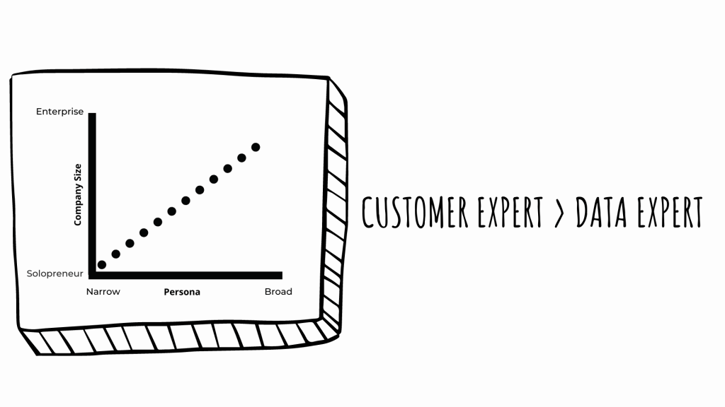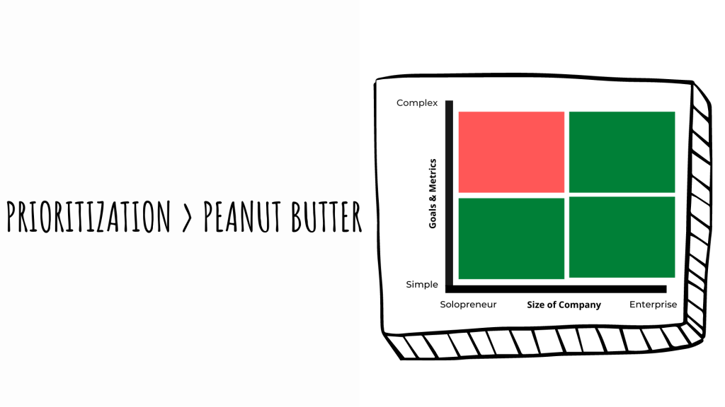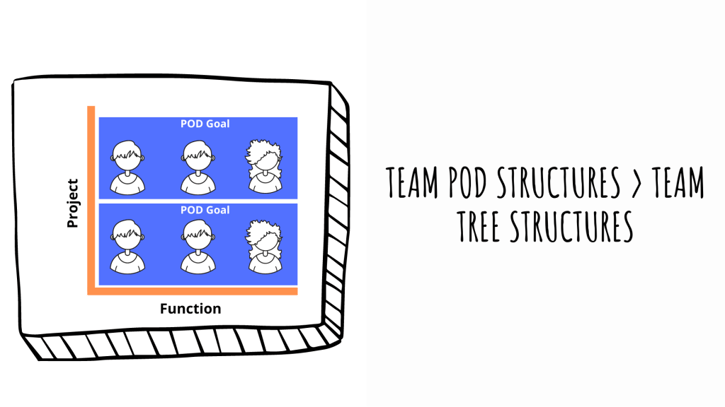In this episode of the GrowthTLDR, we talk about the relationship between marketing and data and how some of the world's best companies use data to optimize their go-to-market.
We talk about the benefits of being an expert in your customer versus an expert in data, along with examples of world-class brands that excel in being customer experts.
We talk about the importance of metrics and prioritizing the metrics that matter most to your growth over the next 6 to 12 months. We talk about how important it is to define those metrics, establish playbooks, and create the right team to impact those metrics.
We then discuss how the best companies establish pods to make an impact against those metrics, how pods work, and the benefits of creating them.
On the GrowthTLDR, we've talked to over 150 founders and marketing & growth leaders. Something evident in all those talks is how they build their go-to-market around metrics.
But, it's not merely about measuring and reporting and data. How the fastest-growing companies think about data goes beyond that.
This podcast covers three of the best tips for how fast-growing companies build go-to-markets around metrics.
1. Customer Expert > Data Expert
"Who is the precise customer you're attempting to serve? And what can you offer them that's 10x better relative to the alternatives." - Andy Johns (Partner at Unusual Adventures)
The best companies focus on being experts on solving their customer's problems. As your company grows, who your customer is, and the problems you solve will change. But that obsession with understanding the customer problems your product solves never should.

Other points we discussed in this section:
- Daniel Scrivner, the CEO of Flow, discussed in episode 143 how they picked a couple of customer problems to solve in a 10x way that helps differentiate themselves.
- Aaron Krall, a SaaS Onboarding, gave this advice in episode 45 on what customers you should be getting data on:
"Identify your top 4% of customers who generate most of your revenue and ask them about their experience with your tools and business.
You want to understand what they find most valuable."
- Questions you can ask to get data about your customers include:
a. If we took the product away tomorrow, what would you miss?
b. How were you solving your problem before purchasing this product?
c. If you had to convince a friend to use this product, how would you recommend it to them?
2. Prioritization > Peanut Butter
One of the most under-appreciated talents of great leaders is prioritization.
It's easy to say yes to everything; it's hard to tell your team no, that you're only prioritizing a small number of initiatives in the coming 6 to 12 months.
Most founders I talk to are successful because of prioritization. Here is an
excellent quote from Wade Foster, Co-founder, and CEO at Zapier, who talked about how prioritization helped them to more than 50M in ARR on episode 16.
"But I think very rarely in companies is it all the things we did that made us a success, it's typically, one or two of the things we did that resulted in our success, and then all the other stuff, we probably just did poorly because we were tiny, we didn't have enough resources, we couldn't do well enough, but it was just not bad enough that we failed." - Wade Foster (CEO & Co-Founder @Zapier)
For fast-growing companies, prioritization of metrics is critical. The complexity of your goals and metrics should be aligned with your company size.

Today, most companies are data-driven. It's not that companies aren't measuring metrics, it's they're prioritizing too many metrics, and they don't understand the ones that matter over the next 6 to 12 months.
There are only four metrics that matter for business growth:
a. Generating more demand
b. Improving the win rates from that demand
c. Growing the amount of money you make from customers
d. Retaining customers for longer
If I need to grow revenue by 50% in the next six months, I need to understand what metrics have the most opportunity for me to influence to generate that extra revenue.
Maybe it's growing traffic, or improving conversion rates, or better revenue expansion, but it's not every metric.
Once you understand what metrics matter, you can document what playbooks you'll roll out to influence those metrics, what people will execute those playbooks, and what/if any resources you need.
Metric -> Playbook -> People
3. Team Tree Structures -> Team Pod Structures
Once you've decided on metrics, and people, how you align people and teams to impact those metrics determines your success.
Historically, how we've thought about team structure in business has been based on tree structures, each function organized in a silo and doing their work.
As I've talked to founders and leaders in fast-growth companies, they organize differently.

They organize into cross-functional PODs dedicate to a metric the business wants to move. PODs are cross-functional teams, with a selection of people across different disciplines best suited to helping the company make an impact on the metric/s their prioritizing.
On episode 46 of the GrowthTLDR, Lenny Rachitskyr the former head of growth at Airbnb, said this about pods:
"At Airbnb, they realized their best path for growth were cross-functional teams dedicated to a problem."
We talked to the founder and CEO of Calendly, Tope Awotona, and their VP of Product Oji Udezue about Calendly's growth to $50m in ARR; both discussed how their teams are broken into PODs. Each POD has accountability to a mission, a metric, and a customer segment. Those teams are cross-functional, with marketing, product, and other disciplines where needed.
Adelina Peltea is VP of Growth at Holded, a 70 person company based in Barcelona, who sells business software to SMBs/Mid-Market. One of the first things she did was reorganize her team of 30 into cross-functional pods to improve customer-centricity across their go-to-market, with some immediate benefits.
With sales and marketing working in the same pods, it led to sales improving the use of automation in their workflow, and marketing has become more knowledgeable about their prospect's needs and challenges.
Pods are a great way to have agility in prioritizing metrics and ensuring you have the right skills and resources to be successful.
Listen to the podcast for the full discussion!
 iTunes
iTunes Stitcher
Stitcher Spotify
Spotify